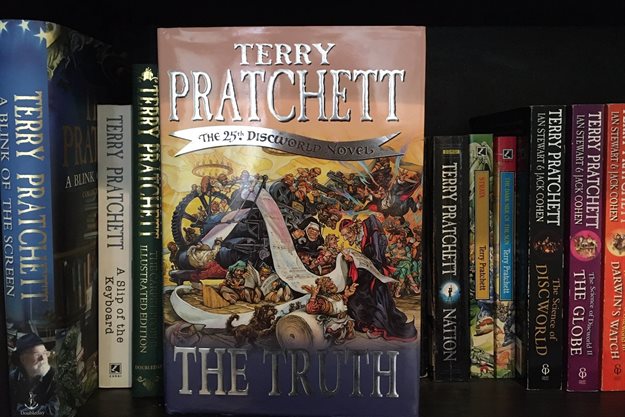Truth and trash in the circular economy
It's no secret that Terry Pratchett is my all-time favourite author. He's unbeatable when it comes to wit and wisdom. This week, I was rereading Pratchett's The Truth to pull out some quotes on free speech and fake news for some research I'm doing for my day-job as a business trends analyst over at Flux Trends. On rereading the story, I was struck by a minor character in the novel by the name of Harry King, who reminded me of one of the all-time greatest business lessons; namely that every messy problem is a business opportunity in disguise.
In the book, Harry King is an entrepreneur who has made the bulk of his sizeable fortune from collecting and selling human waste to leather tanners; as well as other forms of waste recycling. By getting his hands dirty in the literal sense, Harry King is able to turn other’s trash into his treasure.
I was particularly amused by this little side story because the same story is playing out in various guises across our very real world right now.

The Great Pacific business opportunity
Take the Great Pacific garbage patch for example, which is now estimated to cover a surface area of 1.6m² - that is three times the size of France!
This immense mass of human trash is about as big a messy problem as one can get.
Governments have viewed the situation as exactly that: an expensive problem that can only be solved at a massive cost and with large-scale regulatory intervention.
Entrepreneurs, however, are viewing the situation as an opportunity and a potentially profitable one at that. Big brands, including Adidas and Stella McCarthy (both in partnership with Parley for The Oceans), and eco-startups such as The Ocean Cleanup, are now mining plastic waste from the ocean and turning it into high-fashion apparel and other desirable designer items; bringing conspicuous consumption full circle into the circular economy.
The beige gold rush
Back on land, cardboard recycling has become such lucrative business that in Spain criminal cartels are stealing cardboard waste - now being called 'beige gold' - to sell on to recycling plants.
To put the scale of the opportunity (or temptation) into perspective: the global recycled paper and cardboard market is expected to be worth $5.4tn per annum by 2024.
Harry King would be proud.
Get your hands dirty. Messy problems require creative solutions
For me, anyway, it is encouraging to see how environmentally and economically sustainable solutions can emerge for seemingly insurmountable social and environmental challenges from the bottom up; rather than from the top down. All it takes is a change of perspective. After all, every problem is a business opportunity waiting to happen; if you’re willing to get your hands a little dirty.
About Bronwyn Williams
- #PulpNonFiction: Local books worth reading and gifting this holiday - 20 Dec 2021
- #PulpNonFiction: In search of utopia - 13 Dec 2021
- #PulpNonFiction: Free Britney and other true conspiracies - 6 Dec 2021
- #PulpNonFiction: On the contrary - 29 Nov 2021
- #PulpNonFiction: The tail of Pan narrans - 22 Nov 2021
View my profile and articles...